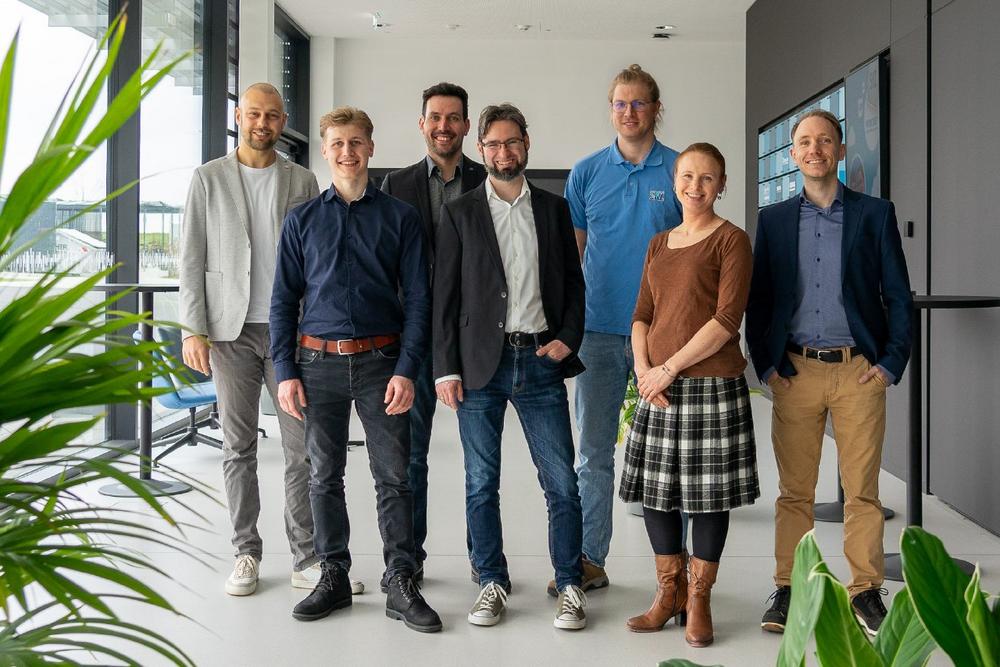The future of plastics testing

Breaking News:
Kathmandu Nepal
Freitag, Apr. 25, 2025

Companies in the plastics industry are constantly facing new challenges. In addition to continuously improving product quality and increasing efficiency, they also have to deal with growing pressure in terms of automation, a shortage of skilled workers and reducing costs. In this dynamic environment, it is becoming clear that traditional destructive testing methods are no longer sufficient to meet requirements, optimize production and remain competitive. One possible answer lies in non-destructive testing (NDT), in particular inline-capable NDT.
The aim of the test methods is to obtain as much information as possible about the condition of the component or material without damaging or even destroying it. Which test method is best suited for the specific application must be assessed individually, taking into account the respective advantages and disadvantages. Various measuring methods are available at the SKZ Plastics Center, such as ultrasound, terahertz, thermography, shearography, microwave and X-ray methods.
The "Non-destructive testing" group currently consists of seven employees. Group leader Luis Wachter gives an overview of the diverse fields of activity.
What topics are you currently focusing on in the group?
Luis Wachter: In non-destructive testing, we are currently mainly concerned with detecting flaws and defects such as blowholes or foreign material, determining geometry, e.g. when measuring the thickness of sheets or films, monitoring changes in aggregate state such as adhesive curing and, finally, testing foamed materials such as determining density or cell size. We do not limit ourselves to one material or product class, but measure plastic melts as well as extruded semi-finished products or complex injection molded parts. In addition, products can be tested at any point in their service life.
What services does the NDT Group offer?
Luis Wachter: The Group’s services cover precisely those issues that are necessary for the implementation of measurement technology. It often starts with a feasibility study that answers the question of which measurement technology is suitable for the specific problem. We can offer market research that compares suitable measurement systems and enables the customer to make an informed and independent decision. We also develop tailor-made data and signal evaluations for existing measurement technology and support our customers in the implementation of measurement technology right through to the custom-fit inline measurement system. We also offer testing of individual products, e.g. in a computer tomograph.
Inline-capable NDT is the future of plastics testing. What are the advantages?
Luis Wachter: The advantage of in-line NDT is that it can be carried out during the ongoing production process and 100% of the manufactured products can be tested. By using state-of-the-art technologies such as thermography, terahertz technology, microwave radar or ultrasound, defects, cracks or inhomogeneities can be detected in real time. Product properties such as layer thickness, density or cell size of foamed plastics can also be monitored. These methods enable fast, continuous and reliable quality control without the product having to be damaged or removed from production. Deviations in production can be detected and corrected at an early stage. This leads to a significant reduction in rejects, material losses and therefore costs. On the other hand, inline-capable NDT enables seamless integration into an automated production line, which in turn reduces the need for manual intervention and makes the production process more efficient. In addition, inline-capable NDT helps to improve data analysis and processing. By automatically recording and evaluating product inspections, companies can gain valuable insights, continuously optimize processes, improve product quality and make workflows more efficient.
Further information on the research field of non-destructive testing
The SKZ is climate protection company and a member of the Zuse Association. This is an association of independent, industry-related research institutions that pursue the goal of improving the performance and competitiveness of industry, especially SMEs, through innovation and networking.
FSKZ e. V.
Friedrich-Bergius-Ring 22
97076 Würzburg
Telefon: +49 931 4104-0
https://www.skz.de
![]()